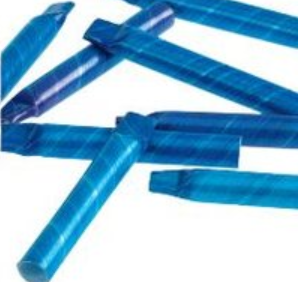Polyethylene terephthalate, commonly known as PETP or polyester, is a popular thermoplastic material used in various industries for its excellent mechanical, chemical, and thermal properties. Among its most prominent applications is in aluminum mold casting – a process that involves shaping molten aluminum into a solid object using a mold made of PETP.

In this blog, we will discuss PETP's features and benefits for aluminum mold casting, how it compares to other materials, and why it has become a staple in the industry. We will also explore its potential for further development and innovation.
Features and Benefits of PETP for Aluminum Mold Casting
PETP has several unique features that make it well-suited for aluminum mold casting. Firstly, it has a high resistance to wear and tear, which prevents it from being damaged by the high temperatures and pressures involved in the process. PETP is also highly resistant to chemicals, making it an ideal material for factories and industrial settings where harsh chemicals and solutions are commonly used. Additionally, it is highly resistant to water and moisture, making it a reliable option for casting in wet or humid environments.
Another advantage of PETP for aluminum mold casting is its high dimensional stability. This refers to the consistency of the material's physical properties, which allows it to maintain its shape and size even under high-stress conditions. As such, PETP is ideal for creating precise and detailed molds that can be used repeatedly without losing their shape or quality.
PETP is also easy to machine, which makes it convenient for factories and manufacturers to use. It can be easily cut or shaped into any required forms or sizes, making it a versatile material for a wide range of applications. PETP's lightweight and durable nature make it an excellent option for transportation and storage, making it accessible for various industries around the world.
PETP vs. Other Materials
PETP is a highly competitive material for aluminum mold casting compared with other materials such as metal, ceramic, and other thermoplastics. Metals, although durable and highly conductive, are significantly heavier and more expensive. Ceramics are also more expensive and prone to cracking, while other thermoplastics such as polypropylene are less durable and less resistant to chemical damage.
PETP is a great alternative for these traditional materials, as it offers comparable or better properties at a lower cost. It is also easier to work with and shape, and less prone to cracking, breaking, or degrading over time. PETP's lightweight nature also reduces the overall weight of the mold, making it easier to handle during the casting process.
Potential for Innovation
PETP has a strong foothold in the aluminum mold casting industry, but new technological advancements are making it even more useful and versatile. PETP can be reinforced with glass or carbon fibers, which increases its strength and durability. It can also be compounded with other materials such as thermoplastic elastomers, which can enhance its flexibility while still retaining its other properties.
Additionally, manufacturers are exploring the potential of using recycled PETP for mold casting, which could reduce waste and environmental impact. Newer PETPs may use biodegradable or bio-based materials, which could lead to an environmentally friendly option for aluminum mold casting.
Conclusion
In conclusion, PETP is an excellent material for aluminum mold casting, offering numerous benefits such as high mechanical, chemical, and thermal properties. Compared to other materials, PETP is both cost-effective and versatile, making it a well-suited material for various industries. Furthermore, technological advancements in PETP's production and innovation are making it even more valuable and environmentally friendly.
If you are looking for lightweight and durable materials for aluminum mold casting, consider using PETP. Its unique properties and versatile applications make it a solid option for your industry's casting needs.